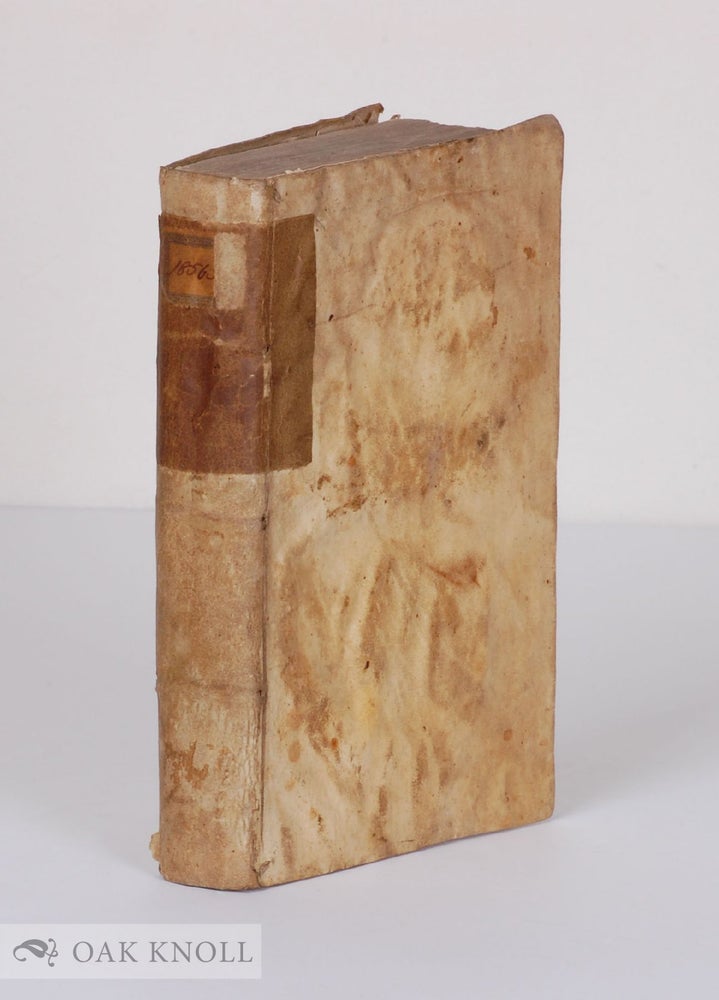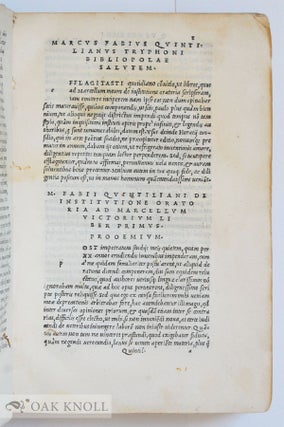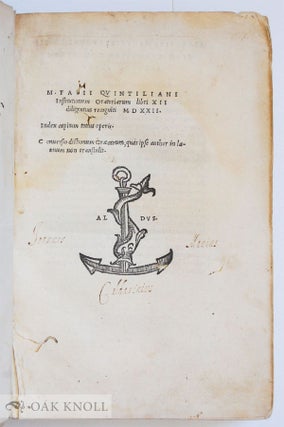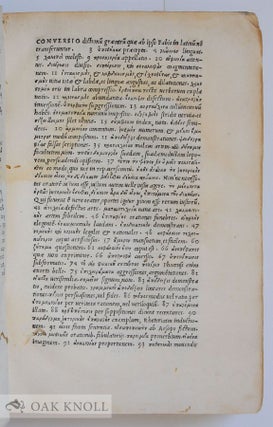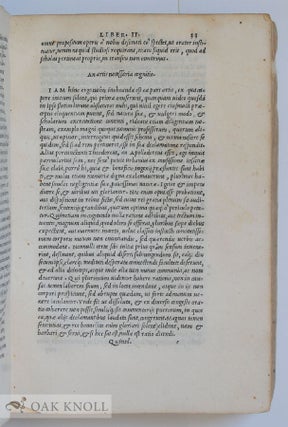INSTITUTIOINUM ORATORIARUM LIBER XII.
- Venetiis (Venice), Italy: In aedibus Aldi, et Andreae soceri, 1522 (1521).
- 8vo
- vellum
- (4), 230 leaves
Price: $1,300.00 other currencies
Order Nr. 135288
Second Aldine edition. Text in Latin. Octavo volume bound in contemporary vellum, with a brown numbered label on spine. An early 18th century ownership inscription written in ink on front free endpaper. Wear and soiling to vellum. Mild bookworm damage throughout, primarily to the margins. Large tear, with loss, on leaf 136 not affecting the text. Moderate stain affecting leaves 6 through 16. Imprint from colophon (leaf f6r). The preface of Aldus is the 1514 edition. Greek words on leaf *4 have been added to this edition. The printer's device appears on the title page and the verso of the last leaf. Second Aldine edition of a milestone in Western pedagogy, including for the first time the Latin translation of Greek words used in the text. The Institutiones were written in about 35 AD by the great Roman rhetorician Quintilian, setting out the education of an orator from babyhood to manhood. First printed in 1470 and based on the complete manuscript found at St. Gall by Bracciolini in 1416, it proved deeply influential in the Renaissance, during which time the humanitsts shared Quintilians belief in the relationship between rhetorical skill and moral education. Quintilian takes his future orator at birth and shows how this goodness of character and skill in speaking may be best produced. No detail of training in infancy, boyhood or youth is too petty for his attention. The parts of the work which relate to general education are of the greatest interest and importance. Quintilian postulates the widest culture; there is no form of knowledge from which something may not be extracted for his purpose; and he is fully alive to the importance of method in education.....[His] literary sympathies are extraordinarily wide.....[and] ancient literary criticism perhaps touched its highest point in the hands of Quintilian. (Enc. Brit., 13th. ed.).The work is dedicated to Giovanni Battista Ramusio (1485-1557), the Orientalist, ethnologist and famous geographer who provided Aldus and Andrea Navagero with a reliable manuscript for this publication.
Ahmanson-Murphy 168; Renouard 93:14; Kallendorf 184; Adams Q-56; EDIT 16 CNCE 54149; STC Italian, p. 546; Brunet IV, 1025.

